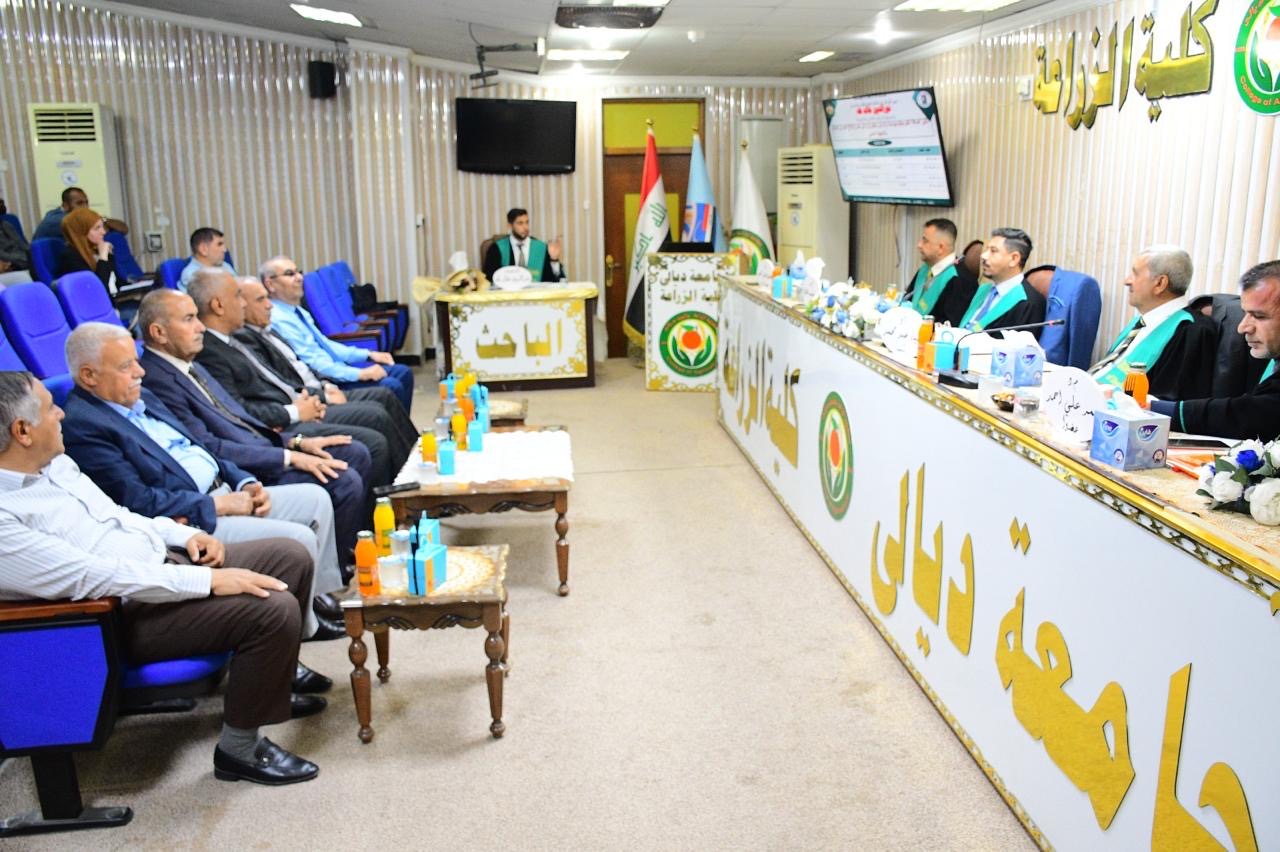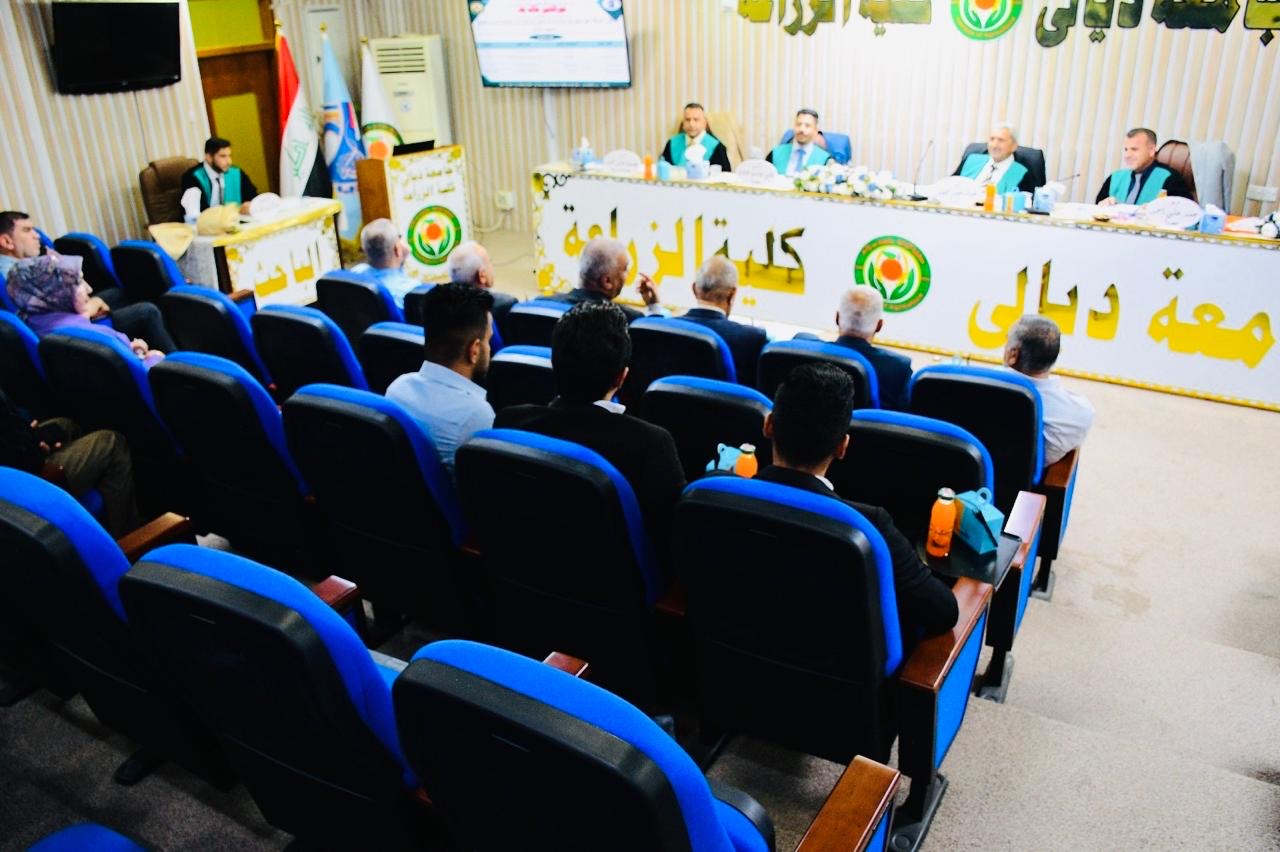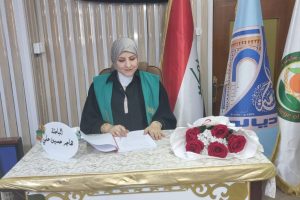A Master’s Thesis at the College of Agriculture on the Effect of Vermicompost Application and Boron Foliar Spraying on the Growth and Yield of Mustard under Water Stress Conditions

The College of Agriculture at the University of Diyala has examined a Master’s thesis entitled
“The Effect of Vermicompost Application and Boron Foliar Spraying on the Growth and Yield of Mustard under Water Stress Conditions.”
The study, presented by the student Noor Al-Din Khalid Taha, aimed to investigate the impact of water stress on the growth and yield of mustard plants. It also sought to assess the effects of foliar application of boron and soil incorporation of vermicompost on the same parameters. Furthermore, the research endeavored to evaluate the responsiveness of mustard plants subjected to water stress when treated with boron spraying and vermicompost application, and to determine the optimal combination of these treatments for enhancing growth traits and yield.
The study reached several conclusions, among which are the following:
It can be inferred that mustard plants exposed to water stress were able to complete their growth cycle normally when treated with the second level of boron foliar spray (B100) and the third level of soil-applied vermicompost (V2). Additionally, the application of boron and vermicompost significantly enhanced plant growth and yield under water stress conditions.
The study recommends the following:
Foliar application of boron at a concentration of 100 mg·L⁻¹ to mitigate the adverse effects of water stress on plants.
Soil application of vermicompost, given its content of essential nutrients that alleviate water stress and support the plant with elements vital to growth and productivity.
Spraying mustard plants with boron at 100 mg·L⁻¹ in combination with vermicompost at a rate of 2 Mg·ha⁻¹ to achieve the best results for the studied traits and to reduce the impact of water stress.







